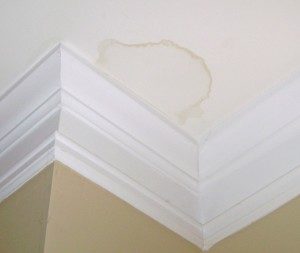What Causes Water Leaks? The Six Most Common Reasons in Homes
What Causes Water Leaks? The Six Most Common Reasons in Homes
Blog Article
What're your opinions on How to Find Water Leaks?

Leaks not just trigger waste of water but can additionally trigger unnecessary damages to your residence and also advertise unwanted organic growth. By looking and recognizing for daily situations that create leaks, you can protect your residence from future leakages and unneeded damage.
Instantaneous temperature changes.
Extreme temperature level changes in our pipelines can trigger them to expand as well as get unexpectedly. This development and contraction might trigger splits in the pipes, particularly if the temperature level are below freezing.
Rusty water supply
As time passes by, your plumbing system ages and also corrosion such as rust might begin eating away the pipes. This could be the reason for discoloration or bending on your pipes. This calls for an assessment with your plumber instantly. If our plumbing system is old, take into consideration replacing the pipes considering that they go to a higher risk of rust than the more recent versions.
Defective Pipe Joints
The factor at which your pipelines attach is frequently the weakest web link in the waterline. Pipeline joints can degrade with time, causing water leakages. The majority of pipe joints are not easily visible. If you have noisy pipes that make ticking or banging sounds, specifically when the warm water is turned on, your pipe joints are most likely under a great deal of pressure. It is a good idea to have your plumber inspect your system once a year.
Intruding roots
Most water leaks begin outside your house as opposed to inside it. If you see a sudden decline in water pressure, state in your faucet, take some time to head out and analyze your backyard. You may observe damp spots or sinkholes in your lawn, which could suggest that tree roots are attacking water lines causing water to permeate out. You can have your plumber look for breach, specifically if you have trees or bushes near your residential property.
Poor Water Connectors
At times, a leakage can be created by loosened hoses as well as pipes that supply your devices. In case of a water links leakage, you might discover water running directly from the supply line or puddles around your appliances.
Blocked Drains
Obstructed drains may be irritating as well as inconveniencing, yet they can in some cases wind up causing an overflow causing break pipes. Maintain getting rid of any products that might go down your drains that can block them to stay clear of such inconveniences.
All the above are root causes of leaks but not all water leaks arise from plumbing leakages; some leaks may originate from roof covering leaks. All leaks must be fixed immediately to prevent water damages.
Leaks not just create waste of water but can also trigger unneeded damages to your residence and promote unwanted organic development. By comprehending and also looking for daily scenarios that create leakages, you can protect your home from future leakages and unnecessary damage. Today, we will look at six leak triggers that may be triggering your pipelines to trickle.
At times, a leakage can be created by loosened tubes and pipelines that provide your devices. In case of a water connections leak, you may notice water running directly from the supply line or puddles around your home appliances.
How To Check For Water Leak In Your Home
How To Check for Leaks
The average household's leaks can account for nearly 10,000 gallons of water wasted every year and ten percent of homes have leaks that waste 90 gallons or more per day. Common types of leaks found in the home are worn toilet flappers, dripping faucets, and other leaking valves. These types of leaks are often easy to fix, requiring only a few tools and hardware that can pay for themselves in water savings. Fixing easily corrected household water leaks can save homeowners about 10 percent on their water bills.
To check for leaks in your home, you first need to determine whether you're wasting water and then identify the source of the leak. Here are some tips for finding leaks:
Take a look at your water usage during a colder month, such as January or February. If a family of four exceeds 12,000 gallons per month, there are serious leaks.
Check your water meter before and after a two-hour period when no water is being used. If the meter changes at all, you probably have a leak.
Identify toilet leaks by placing a drop of food coloring in the toilet tank. If any color shows up in the bowl after 10 minutes, you have a leak. (Be sure to flush immediately after the experiment to avoid staining the tank.)
Examine faucet gaskets and pipe fittings for any water on the outside of the pipe to check for surface leaks.
Undetected water leaks can happen without the home or business owner even realizing. If you suspect a water leak, but not able to find the source. It is time to contact a professional water leak detection service, The Leak Doctor.
How To Find a Water Leak In Your Home
https://www.leakdoctor.com/blog/How-To-Check-For-Water-Leak-In-Your-Home_AE197.html

We had been made aware of that article on How to detect water leaks in your home from someone on another domain. You should take the opportunity to share this blog if you enjoyed reading it. I take joy in reading our article about How to detect water leaks in your home.
Click Here Report this page